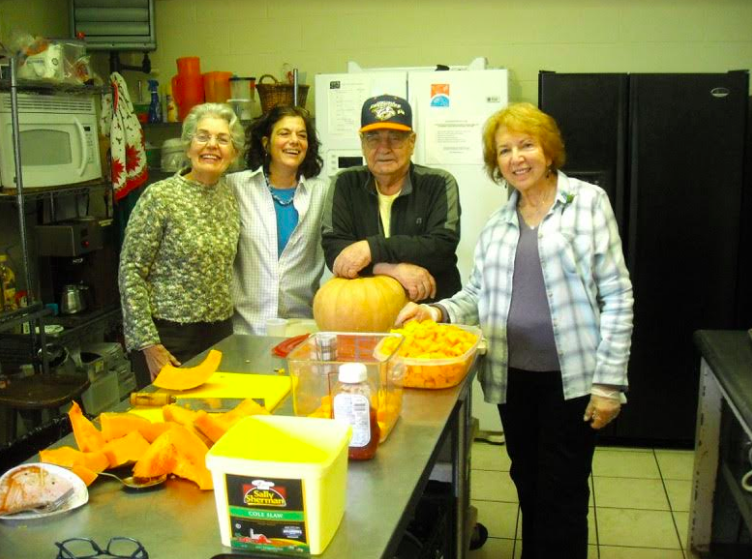The nonprofit Soup Kitchen was established in 1980 with a specific goal of helping the less fortunate members of the community. These included the elderly, unemployed, underemployed, poor and the homeless. The church provides a safe, clean and uplifting environment for guests in need of a nutritious lunch at no cost, seven days a week. It is sustained by committed and compassionate volunteers and by the generous contributions of donors.
The history of soup kitchens in America can be traced back to the year 1929 with the effects of a growing depression. When soup kitchens first appeared, they were run by churches or private charities and served mostly soup and bread. Soup was economical because water could be added to serve more people.
“I manage the Soup Kitchen and Thrift Shop,” Kitty Nash told the Rockland County Times. “Funds raised from the Thrift Shop go back into the feeding ministry. I am in charge of 65 volunteers and can only accommodate six volunteers in the kitchen at any one time. We provide a free, complete hot lunch for 50 to 75 people, seven days a week from 11:30 a.m. to noon. Everything is made from scratch on the premises and nobody goes hungry!”
“We follow the guidelines of the food pyramid and everyone is served a healthy meal,” Nash continued. “ On the menu today is beef stew, vegetables, bread and butter, a green salad, plus a drink and dessert. This feeding program, which started out as soup and a sandwich, has been in existence for 28 years. If there are food items left over after serving lunch, I give them to families to make a meal at home. We have a group of volunteers coming in from California, who has donated time for many years to serve the Thanksgiving feast.”
The Thanksgiving dinner is a meal with a large roasted turkey at the center of the table. It is served with traditional dishes such as mashed potatoes, stuffing and cranberry sauce. The ‘First Thanksgiving Feast’ in 1621 between the Pilgrims and the Wampanoag Indians at Plymouth Colony included waterfowl, venison, ham, lobster, clams, berries, fruit, pumpkin and squash.
“I am no longer working, so I have time to give back to my community and for lunch today I am preparing the desserts,” Volunteer Paula said.
“It is fun to help out in the kitchen and today I am preparing a bean salad,” Volunteer Theresa said.
“I want to give back to my community and basically I help serve and do the cleanup,” Volunteer Tricia said.
“When I retired, I joined my sister, who had been a cook in the school district for many years,” Volunteer Joe said. “I learned how to cook from her and have been here for 23 years.”
The Regional Food Bank of Northeastern New York supplies food to such nonprofit organizations as food pantries, senior centers, shelters, after-school programs, soup kitchens, low-income daycare centers and others. These programs turn the food into nutritious, balanced meals for thousands of men, women and children who otherwise would not get enough to eat. The food bank serves about 1,000 member agencies at any given time. Hunger and malnutrition are prominent and can have consequences:
- Malnourished pregnant women are more likely to have low birth-weight babies.
- Inadequately nourished infants and children are suitable to have learning problems and more illnesses.
- Adults who are hungry are less energetic and productive, making it difficult to find a job or care for children.
- Malnourished elderly persons are less able to prevent illness and enjoy good health.
According to the United States Department of Agriculture (USDA), the food pyramid is designed to make healthy eating easier. Healthy eating is about getting the correct amount of nutrients-protein, fat, carbohydrates, vitamins and minerals a person needs to maintain good health. Healthy eating involves plenty of vegetables, salad and fruit; a serving of whole-grain cereals and breads, potatoes, pasta and rice at every meal; some milk, yogurt and cheese; some meat, poultry, fish eggs, beans and nuts; a very small amount of fats, spreads and oils plus a very small amount of drinks high in fat, sugar and salt.
For additional information, visit www.christchurchsuffern.org or call 845-357-1615.


You must be logged in to post a comment Login